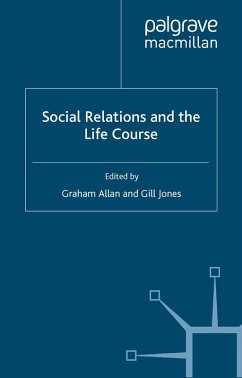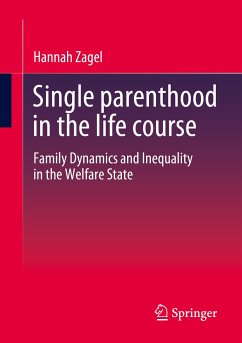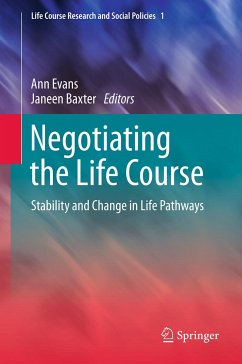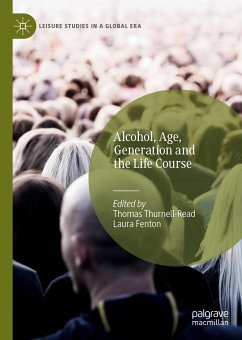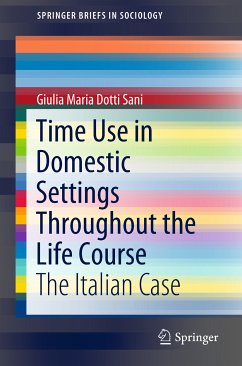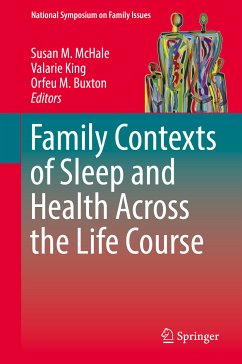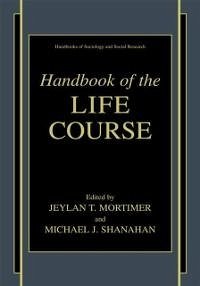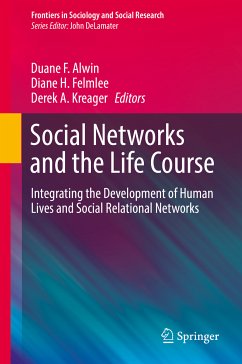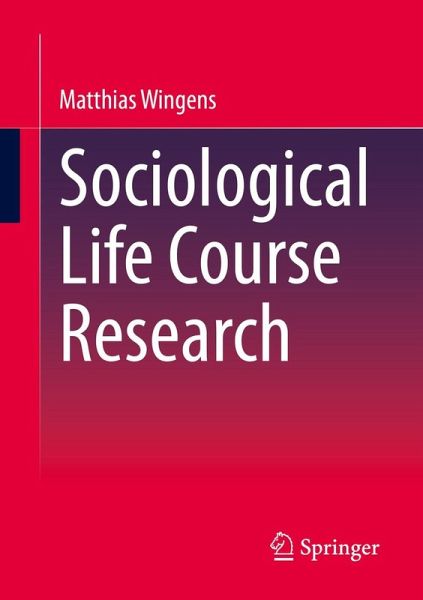
Sociological Life Course Research (eBook, PDF)
Versandkostenfrei!
Sofort per Download lieferbar
Statt: 29,95 €**
22,95 €
inkl. MwSt.
**Preis der gedruckten Ausgabe (Broschiertes Buch)
Alle Infos zum eBook verschenkenWeitere Ausgaben:

PAYBACK Punkte
11 °P sammeln!
This introductory book provides an insight into sociological life course research and informs about its theoretical assumptions, analytical concepts and main results.Sociological life course research - like biographical research - has developed into an independent and fruitful field of research since the end of the 1960s. It is true that half a century earlier, in their famous study of "The Polish Peasant in Europe and America" (1918-20), Thomas and Znaniecki had already used life records to examine the connection between social change, social structures, and the life histories of individuals....
This introductory book provides an insight into sociological life course research and informs about its theoretical assumptions, analytical concepts and main results.
Sociological life course research - like biographical research - has developed into an independent and fruitful field of research since the end of the 1960s. It is true that half a century earlier, in their famous study of "The Polish Peasant in Europe and America" (1918-20), Thomas and Znaniecki had already used life records to examine the connection between social change, social structures, and the life histories of individuals. However, such a research perspective was supplanted by other methodological-conceptual approaches to empirical social research for over fifty years. It was not until the 1960s that sociological interest in life course and biographical theoretical issues reawakened. Today, life course research is considered one of the most important conceptual innovations in sociology in recent decades.
The content
The life course as a social construction - What is "life course research"? - The life course as an institution - Collective life courses: generations, cohorts and social change - Structures of the life course - Life course research - a conceptual perspective - Life course research, quo vadis?
The author
Prof. Dr. Matthias Wingens teaches sociology at the University of Bremen, Bremen International Graduate School of Social Sciences (BIGSSS).
Sociological life course research - like biographical research - has developed into an independent and fruitful field of research since the end of the 1960s. It is true that half a century earlier, in their famous study of "The Polish Peasant in Europe and America" (1918-20), Thomas and Znaniecki had already used life records to examine the connection between social change, social structures, and the life histories of individuals. However, such a research perspective was supplanted by other methodological-conceptual approaches to empirical social research for over fifty years. It was not until the 1960s that sociological interest in life course and biographical theoretical issues reawakened. Today, life course research is considered one of the most important conceptual innovations in sociology in recent decades.
The content
The life course as a social construction - What is "life course research"? - The life course as an institution - Collective life courses: generations, cohorts and social change - Structures of the life course - Life course research - a conceptual perspective - Life course research, quo vadis?
The author
Prof. Dr. Matthias Wingens teaches sociology at the University of Bremen, Bremen International Graduate School of Social Sciences (BIGSSS).
Dieser Download kann aus rechtlichen Gründen nur mit Rechnungsadresse in A, B, BG, CY, CZ, D, DK, EW, E, FIN, F, GR, HR, H, IRL, I, LT, L, LR, M, NL, PL, P, R, S, SLO, SK ausgeliefert werden.



